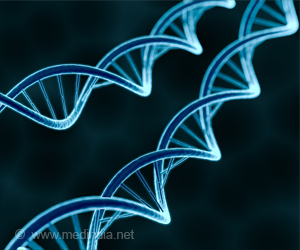- High protein intake is linked to increased risk of atherosclerosis
- Plant-based protein sources offer heart-healthy alternatives
- Moderation in protein consumption is crucial for cardiovascular well-being
A recent study conducted at the University of Pittsburgh and published in the journal Nature Metabolism has shed light on the potential risks associated with high protein intake in relation to cardiovascular health. The findings suggest that consuming more than 22% of daily calories through proteins may increase the risk of atherosclerosis and worsen existing conditions (1✔ ✔Trusted Source
High-protein diets increase cardiovascular risk by activating macrophage mTOR to suppress mitophagy
).
Understanding the Hidden Dangers of Excessive Protein
The study employed a comprehensive approach, utilizing human trials, experiments involving mice, and cell cultures to investigate the impact of protein intake on cardiovascular health. Human trials involved 23 participants, and researchers utilized two different study setups to assess the effects of protein-rich meals.
In the first setup, participants consumed liquid meals with standard and high protein content. The results indicated that higher dietary protein intake led to elevated levels of leucine, an amino acid associated with the development and progression of atherosclerosis.
Similarly, in the second setup designed to mimic real-world scenarios, participants consuming high-protein meals exhibited increased activation of immune cells and pathways linked to atherosclerosis. These findings were further corroborated by experiments conducted on mice, which demonstrated similar outcomes to the human studies.
Dr. Babak Razani, a professor of medicine at the University of Pittsburgh and one of the authors of the study, emphasized the significance of the findings. He highlighted the role of leucine in driving the risk of atherosclerosis and emphasized the need for caution regarding high protein diets.
The study’s conclusions challenge conventional dietary recommendations and underscore the importance of reevaluating protein intake guidelines. While some organizations recommend protein intake at approximately 11% of daily energy requirements, the study suggests that exceeding 22% of daily energy intake from protein may pose significant health risks.
Beyond the Pump: The Hidden Dangers of Excessive Protein
Contrary findings from previous studies have sparked debate among experts. While some studies have reported no significant difference in cardiovascular outcomes between standard and high-protein diets, the recent study emphasizes the potential adverse effects of excessive protein consumption on cardiovascular health.
In light of these findings, dietary recommendations from experts and dietitians urge individuals to approach high-protein diets cautiously. Anne Danahy, a registered dietician nutritionist, emphasizes the importance of balanced nutrition, highlighting the need for a diverse diet that includes nutrient-rich plant-based foods.
Experts suggest that while protein is essential for overall health, excessive intake may lead to imbalances in nutrient consumption and contribute to cardiovascular risks. Incorporating plant-based protein sources such as nuts, seeds, legumes, and vegetables can offer a healthier alternative to animal-based proteins.
Advertisement
The study’s insights provide valuable guidance for individuals seeking to optimize their dietary habits for cardiovascular health. By adopting a balanced approach to protein intake and prioritizing plant-based sources, individuals can mitigate the risks associated with excessive protein consumption and promote long-term heart health.
In conclusion, the study underscores the importance of moderation in dietary choices and encourages individuals to prioritize a balanced and diverse diet to support overall health and well-being.
Advertisement
Reference:
- High-protein diets increase cardiovascular risk by activating macrophage mTOR to suppress mitophagy – (https://www.ncbi.nlm.nih.gov/pmc/articles/PMC7053091/)
Source-Medindia



